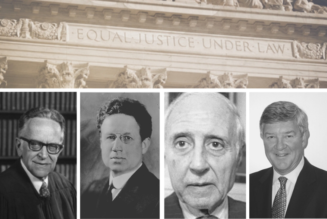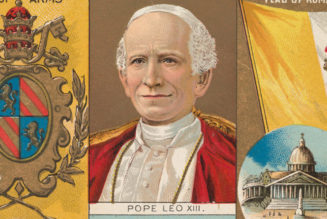ROME – In just under a month’s time, the curtain will go up on the first of two keenly anticipated Synods of Bishops on Synodality, often styled as Pope Francis’s own miniature version of the Second Vatican Council. The event is destined to draw extensive media coverage, most of which likely will focus on a narrow canon of issues (women clergy, married priests, transgender rights, same-sex unions, and so on) and will play up tensions and conflicts.
In conversations with Vatican officials these days, it’s clear there’s alarm about all that. The concern is that in the media, the synod is going to come off as a sort of “brawl to settle it all,” frustrating hopes for consensus.
That’s not a completely irrational fear. I’ve covered 14 synods of bishops since the mid-1990s, and experience tells me that the inner reality of a synod, as described by participants, and the way it’s covered in the press often are two very different things. In general, the atmosphere is generally less strained, and the exchanges more wide-ranging and constructive, than they would seem from the outside.
The extent of that gap tends to correlate with how high-profile a particular synod is and how consequential its topics are perceived to be, meaning this time it’s likely to be roughly the size of the Mongolian steppes Pope Francis just visited.
Given that background, here are four points worth pondering as things get underway.
First, if the Vatican wants coverage to reflect reality, officials need to encourage participants to engage the press.
To be sure, there are a handful of players in every synod who don’t need that encouragement, who are actually eager to stir the pot both on and off the record. These are generally people with axes to grind and agenda to push. It’s everyone else you have to worry about, especially this time around, since the roster has been expanded to include scores of non-bishop participants, including clergy, religious and laity, both women and men.
Experience suggests most of those folks will take their cues from the leadership. If they get the vibe that giving interviews is frowned upon, they’ll be hesitant; if they’re told it’s encouraged, they’ll be more likely to open up.
Of course, there’s a need for confidentiality in the synod discussions themselves, so that participants feel free to speak honestly. No one’s talking about having TV cameras inside the synod all the time … frankly, that wouldn’t exactly be riveting television anyway. The issue instead is how open participants will be outside the hall, when reporters approach them to get a read on what’s happening.
If you want the real story to be told, then let people tell it. Otherwise, don’t blame us if you don’t like the narrative.
Second, organizers shouldn’t be afraid of acknowledging disagreement.
To begin with, the idea that you’re going to bring some 300 Catholic leaders from around the world together for a month, most of them type-A personalities with strong views about the Church, and not have any tensions, is a fantasy. The glory of Catholicism is precisely that, to paraphrase Whitman, it’s large and contains multitudes.
Instead, the pitch ought to be that in a world in which disagreement is often fatal, here’s an example of a highly diverse group of people with contrasting outlooks, experiences and priorities, not to mention varying languages and cultures, who nevertheless are capable of discussing matters in an adult fashion. That’s not a bad form of witness, actually, in a toxic and über-polarized culture.
Rather than trying to apply an artificial veneer of uniformity, in other words, why not make a virtue out of necessity? Doing so, for those still concerned about such matters, also would have the advantage of telling the truth.
Third, a synod is about the journey, not the destination. Despite the quasi-democratic trappings of the exercise, ultimately a synod is merely an advisory body, and it’s still the pope who makes decisions.
As a result, focusing on outcomes often misses the point. The real virtue of a synod is that it’s a graduate seminar in the global realities of Catholicism, as participants from different parts of the world share their experiences and perspectives.
That’s an aspect with special importance for the U.S., since the Achilles heel of American Catholicism is our insularity. There are 1.3 billion Catholics in the world and 70 million in the U.S., meaning American Catholics are just six percent of the global total. You wouldn’t know it from most of our conversations, however, where we tend to assume that American priorities and expectations are (or, at least, ought to be) universal.
American media could do some good by seeking out voices from other parts of the world, not only to discuss the synod but broader matters too – and synod organizers could do their part by making sure those voices are available.
Fourth, how this synod plays out isn’t entirely in the hands of the pope, organizers or participants. It’s also partly dependent on how the rest of us respond.
In that light, here’s a modest proposal: Let’s see if we can get through at least the opening stages without tossing around terms such as “heresy,” “schismatic,” “reactionary,” “closed-minded,” and the like. As a rule of thumb, such pejoratives are a substitute for thought – they allow us to dismiss somebody’s ideas a priori, rather than taking them seriously.
Actually, I’d suggest that synod punditry adopt its own version of Godwin’s law. The famous dictum holds that in internet discussions, whoever makes the first comparison to Hitler or the Nazis loses; in synod commentary, I’d say the same rule ought to apply to whoever’s first to use rhetoric such as “heresy” or “rigidity.”
The admonition, by the way, applies with equal force to those most appalled by the prospects of the synod, and those most enchanted — both of whom, frankly, could do us all a solid by staying off social media for at least the first week.
I’m under no illusion that this proposal is likely to find many takers. In the 21st century media environment, the culture of contempt is hard to resist; I’ve recently written an entire book on the subject, so it’s not like I’m in denial.
But, hey, a guy can still dream.








